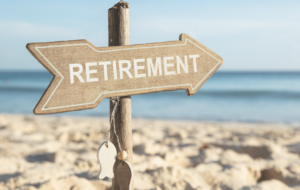Adequately protecting your business means ensuring you are able to replace the full value of your business.
And if your business is growing each and every year, like we hope it is, your policies in place might not be doing today what they once were.
Here at Consolidated Planning, we’re focused on finding the right strategy for you with a process that provides the framework to uncover opportunities, maximize results, and put you on a solid path to achieving all that is important to you.
In this article, we’ll help you understand what Disability Buy-Out Insurance is, how it works, and three ways it helps protect your business, all to ensure that as your business matures you have the right provisions within your Buy-Sell Agreement.
What Is Disability Buy-Out Insurance?
Disability Buy-Out Insurance (DBO) is one of three main types of insurance for business owners to consider. DBO is designed to provide the necessary funds to purchase a disabled owner or partner’s interest in the business if they become disabled.
Disability is defined as an injury or illness that prevents being unable to perform the material duties of your occupation.
Most people think of income replacement when they think of disability insurance. If something happens to you, what happens to your paycheck? Another type of coverage is for overhead expenses which helps keep the lights on, rent paid, staff payroll covered, and so on.
For business owners, one of the most devastating losses that can come from a disability is the loss of their business. That is a very real loss. And this is where disability buy-out coverage comes into play.
How Does Disability Buy-Out Insurance Work?
Disability Buy-Out Insurance is pretty straight forward when it’s included in your Buy-Sell Agreement. Hint, hint, that’s your first step.
Step 1: An Established Ownership Agreement
In operating agreements between business partners, there are typically buy-sell provisions which stipulate what is to happen with company shares as a result of specific events.
For the purpose of this article, we are focused on the disability of an owner. Generally speaking, the disability buy-sell provision will dictate that if an owner is disabled for a specific period of time, say 18-24 months, it is assumed they will never have the capacity to return to work and therefore their shares shall be sold or redeemed for a specific dollar amount.
The dollar amount may be written into the agreement or based on valuations at the time of the triggering event. If the agreement has clear language on what is going to happen, how the buy-out will be funded is a worthwhile conversation to have.
Step 2: The Insurance Policy
An insurance policy that is written to match the language in the contract is generally the most cost effective way to fund the buy-sell agreement.
Most business owners do not keep enough cash on hand to buy out a disabled partner and banks may be unwilling to lend to a business when one of the owners or members is no longer able to work. Insurance companies will issue contracts with lump sum benefits, payouts over time, or a combination of lump sum and periodic payments. The particular terms, amounts, cash flow, occupation and other variables should be weighed into the decision with regards to policy design.
Step 3: Disability Trigger
If one of the business owners becomes disabled as defined in the policy, the Buy-Out Clause within the Agreement will be triggered, the company or the non-disabled owner(s) receive the benefits from the insurance company.
Step 4: The Buyout Process
The funds received from the insurance policy can then be used to buy out the disabled owner’s share of the business according to the terms outlined in the buy-sell agreement. This can help ensure a smooth transition of ownership and provide financial stability for both the disabled owner and the remaining business owners.
Disability Buy-Out Insurance Protects You And Your Remaining Partner
While insurance isn’t something any of us necessarily want to pay for, it provides peace of mind, especially when we’re talking about your largest asset…your business. Here’s why DBO just makes sense:
Protection For The Disabled Owner
Selling the shares in your business is not something any business owner wants to do. But, for the owner who becomes disabled for an extended period of time, think 18 to 24 months, DBO still allows them to realize the full value of their life’s work, even though they aren’t able to work any longer. When the Buy/Sell provision is triggered, the disabled owner or partner will be paid out by either a lump sum or over a period of time.
So while you might not be paid your wages, you are still entitled to your equitable distribution as an owner. In fact, this provision within your agreement actually forces your healthy or remaining partner to buy your shares of the company. Language is really important here and might read like, “If my partner can’t work for 24 months, I must buy their shares of the company.”
Protection For The Remaining Owner
Imagine being the remaining, “healthy” owner who no longer has the support or manpower of their business partner. The work doubles for you but the same amount of money still goes out the door.
When the Buy/Sell provision is triggered, this forces the disabled owner to sell their shares back to the company. Again, language is very important here and might read like this, “If I can’t work for 24 months, I must sell my shares back to the company.”
This prevents the disabled owner or their estate from maintaining a financial stake in the business, which could otherwise lead to complications in decision-making and management.
This protection allows you to move forward with reallocating those dollars to ensure continuity for your business. Protecting all owners involved helps avoid a forced sale and any potential disputes or uncertainties that could arise in the absence of a clear plan.
Does Your Buy/Sell Agreement Have A Disability Buy-Out Provision?
Disability Buy-Out Insurance helps address any financial implications that can arise when a business owner becomes disabled, ensuring that the business can continue operating without disruptions and providing a fair and predetermined method for the disabled owner to exit the business.
If you in fact have a Buy-Sell Agreement in place, does it include provisions for disability or just for instances of death?
It’s essential to carefully review and customize your Buy-Sell Agreement and insurance policies to ensure you have the RIGHT Buy-Sell structure and triggering events in place.
To understand the best course of action to protect you and your business, talk with an experienced planning professional at Consolidated Planning.
2024-170754 Exp. 3/2026
Guardian, its subsidiaries, agents and employees do not provide tax, legal, or accounting advice. Consult your tax, legal, or accounting professional regarding your individual situation. The information provided is based on our general understanding of the subject matter discussed and is for informational purposes only.
This material contains the current opinions of Consolidated Planning only. These are not the opinions of Park Avenue Securities, Guardian, or its subsidiaries.





